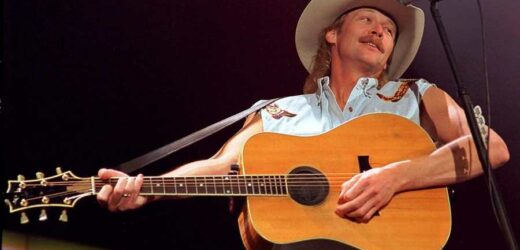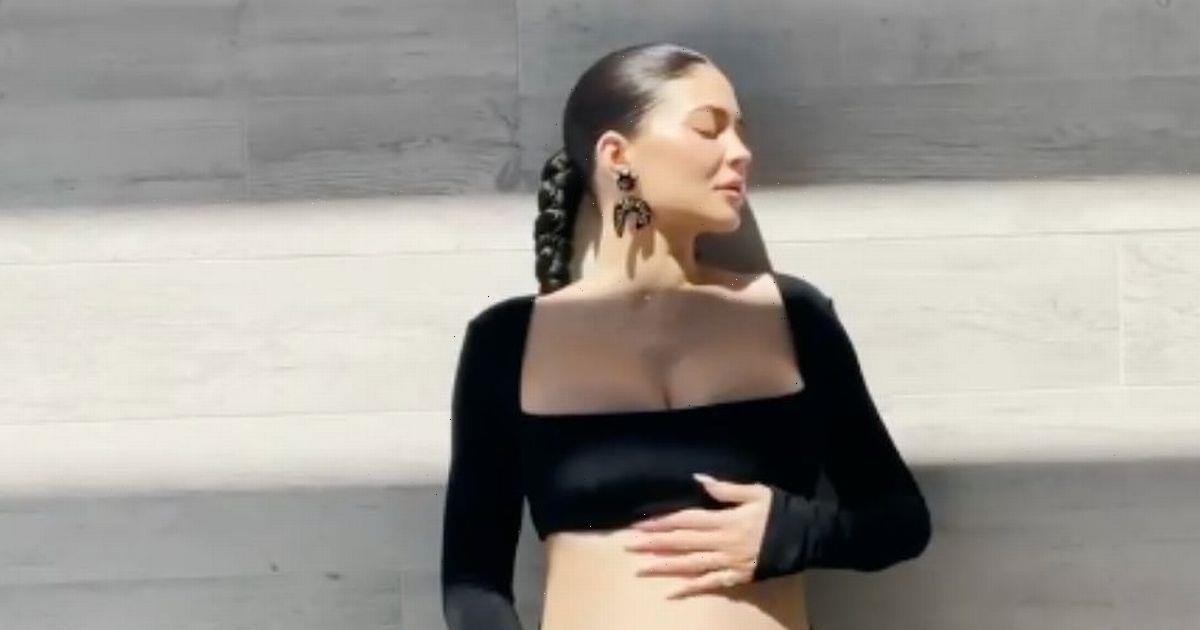Breland wasn’t even a year old when Deana Carter released “Strawberry Wine,” her 1996 ballad about the passing of teenage innocence beneath a “hot July moon.” But the country whiz kid who broke out with the viral “My Truck” regards Carter’s song as a touchstone of his introduction to country music.
“It really beautifully describes an experience that we all have: first love,” Breland, 26, tells Rolling Stone. “There’s a universal truth in the song. I can remember being 17 and feeling like I found the one. And as it turned out, it wasn’t.”
Twenty-five years since its release, “Strawberry Wine” and other Nineties-era country songs have become an essential part of Breland’s streaming playlists.
Related Stories
Spotify's King of Sleep Music Outstreams Lady Gaga, Somehow
Loretta Lynn's Tennessee Flood Benefit Concert: How to Watch, Who's Performing
Related Stories
Black Sabbath on the Making of 'Vol. 4': 'It Was Absolute Pandemonium'
'Silence of the Lambs': 'It Broke All the Rules'
He’s not alone. Nineties hits by artists like Shania Twain, Alan Jackson, the Chicks, and George Strait have all found their way onto the Spotify playlists of Breland’s Gen Z peers. And the streaming service has taken note: On Tuesday, Spotify launched a specially curated “microsite” that amplifies country songs from that decade. It’s an interactive experience with kitschy graphics, deep-dive interviews, and a new Spotify Singles session with Parker McCollum and Tenille Arts covering Nineties classics like Strait’s “Carrying Your Love With Me” and the Chicks’ “Wide Open Spaces.” Breland remakes “Strawberry Wine” as a Nineties R&B ballad.
“I have been singing that song kind of casually over the past few years and was like, ‘Would it be weird for me to try to do a cover?’ I’ve heard a lot of women do it beautiful, but I felt like I could bring a different energy to it,” he says.
It’s all part of Spotify’s campaign to satisfy the listening desires of a surprisingly young audience. According to the streaming service, as many users between the ages of 19 and 24 are listening to Spotify’s 90s Country playlist as users over the age of 45 — the very demographic that was hearing Brooks & Dunn, Joe Diffie, and David Lee Murphy on terrestrial radio live back in the day.
Brittany Schaffer, Head of Artist & Label Partnerships for Spotify in Nashville, says the company noted the trend toward Nineties country around the start of the pandemic, when listeners were seeking comfort in nostalgia. It’s since transcended that novelty and become its own phenomenon. Nearly 90 million playlists from Gen Z users include country songs from the era, while streams of Spotify’s 90s Country playlist in the U.S. have grown 70% since 2018 among Gen Z.
“The growth has been completely organic. The consumption has been naturally driven by our listeners and their own listening habits, and as we started digging into the trend, we started noticing that a significant amount of the growth was coming from Millennials and Gen Z,” Schaffer says. “And when you think about Millennials, it’s not necessarily surprising because that was the soundtrack of our upbringing. With Gen Z, it’s interesting because a large portion of their generation weren’t even alive when these songs were released.”
If they were, they were as young as Breland was. The majority of Spotify’s top five most-shared Nineties country songs among Gen Z users were released at the tail end of the decade: Twain’s “Man! I Feel Like a Woman!”, Lonestar’s “Amazed,” and the Chicks’ “Cowboy Take Me Away” all arrived in 1999, with Twain’s “You’re Still the One” coming in 1998. The oldest of the top five was released in 1993, Alan Jackson’s “Chattahoochee.”
Spotify hopes to deepen its young listeners’ investment in Nineties country by introducing them to the back catalogs of some key artists of the decade. The microsite highlights six albums: Brooks & Dunn’s Hard Workin’ Man, Reba McEntire’s It’s Your Call, Clay Walker’s If I Could Make a Living, Trisha Yearwood’s self-titled debut, Jackson’s Everything I Love, and Twain’s The Woman in Me. Not coincidentally, each of those artists continues to tour three decades later.
“I think it helps that a lot of our Nineties artists are still performing and still releasing music,” Schaffer says. “You’ve got Alan Jackson releasing music this year. You’ve got Brooks & Dunn and Shania Twain collaborating with other artists.”
But the Nineties country resurgence isn’t limited to Spotify. Apple Music, Amazon Music and Pandora have all realized the demand for the subgenre and curated their own Nineties country playlists. Today’s Nashville stars have taken note as well: For the past few years, artists like Luke Combs, Jon Pardi, Carly Pearce, Hailey Whitters, and Midland have been mining the sound, songwriting, and even style of the decade to great success. Blake Shelton based his entire Friends and Heroes Tour around celebrating veterans like John Anderson and Tracy Byrd. And when Joe Diffie, a Nineties icon with hits like “John Deere Greene” and “Pickup Man,” died in March 2020 from Covid-19, our remembrance of Diffie was one of Rolling Stone’s most-read stories ever.
Listening to Schaffer and Breland discuss the decade, the ongoing appeal of Nineties country can be attributed in part to two of the genre’s most enduring talking points — the notions of honesty and of a simpler time.
“One of the things that we’ve started to learn about Gen Z is that they are conditioned to be exactly who they are,” Schaffer says. “That positions with country music really well, because country has always been about authenticity.”
“The Nineties was a time of prosperity and it was also the last few years before all of the modern technology and the Internet that we have today,” says Breland. “But it really comes down to storytelling more than anything else.”
Source: Read Full Article



